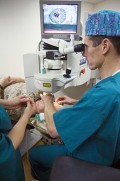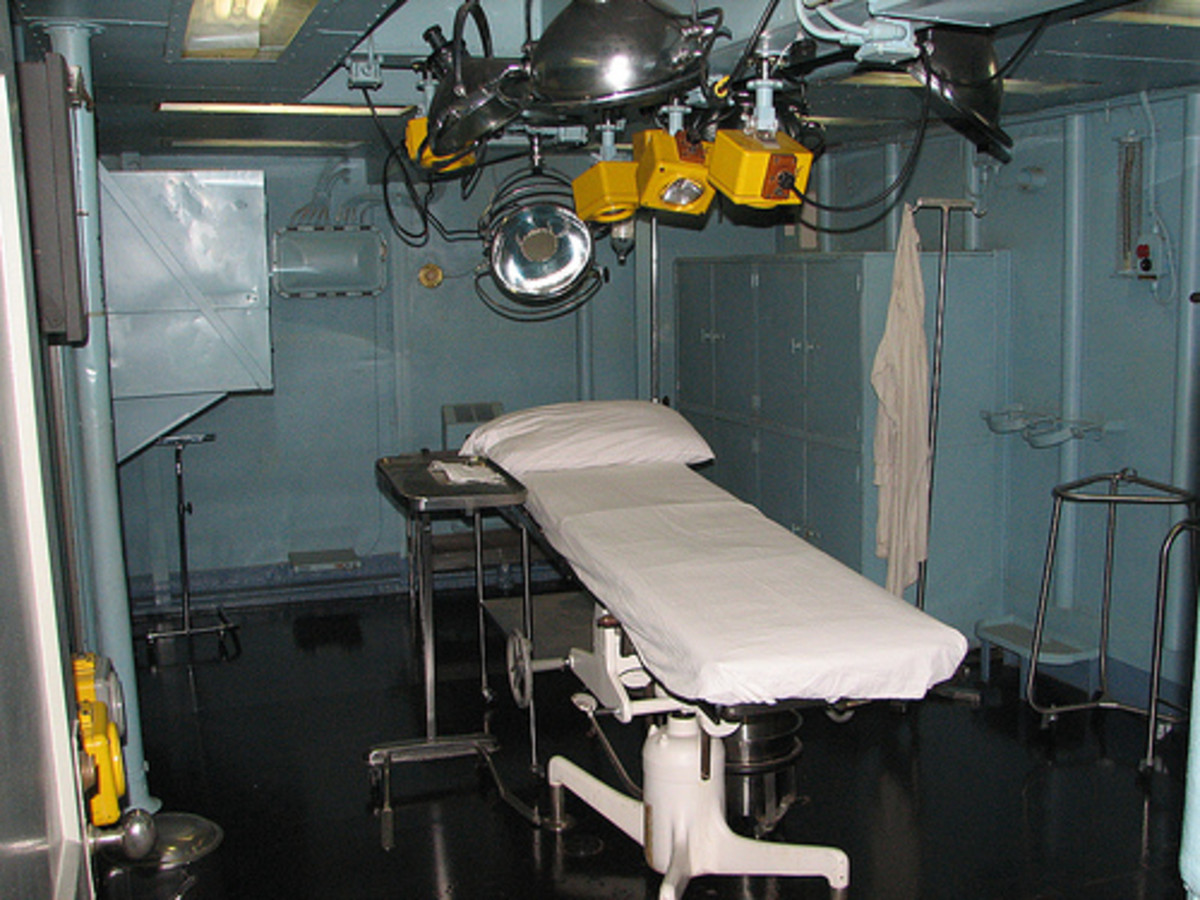5 Tips to Surviving a Surgery Rotation (from personal experience!)

It’s your third year of medical school. You’ve done a few rotations so far, and whether you want to admit it or not you’re starting to feel a little cocky—strutting around the halls of the hospital with a little more spring in your step, white coat flapping in the breeze.
But then something comes in to knock you back down to size and remind you that you’re still just at the beginning of you’re educational journey: the big, bad rotation known as Surgery. Now you’re going to have to battle early mornings, late days, blood and guts, and worst of all hundreds of the dreaded “pimping” questions dished out by surgeons. How are you going to survive?
The first thing you do if you’re anything like me is find every video or article you can on how other students survived their rotation; but after a while, they all start to have the same tips and tricks. So go read a few of those articles and watch a few of those videos, and when you’re all done come back here and I’ll give you five more tips you may not have heard.
Ahh good, you’re back. Let’s get started.
It’s good to prepare…
Tennis great Arthur Ashe once said, “an important key to self-confidence is preparation,” and there are few rotations where one needs more self-confidence than surgery. Thus, preparation is key.
My schedule allowed me four days before starting surgery, and I used that time to build up my armor against the onslaught of questions I knew were soon to come. Everyone knows anatomy questions are easy pickings for surgeons because they know the anatomy to the last detail, they’re easy questions to ask at any time during the surgery (“Hey med student, what’s that thing?”) and it’s important knowledge for really any field. But those aren’t the only things they could ask you, so if you are with a general surgeon you should go in already knowing things like:
-the “5 W’s” of post-op fever
-main causes of pancreatitis, small bowel obstruction, and hernias
-layers of the abdominal wall
-Biliary colic vs acute cholecystitis vs ascending cholangitis
-how to work up a patient with right upper quadrant, left upper quadrant, and epigastric pain
-Meckel’s diverticulum “rule of twos”
-What is a HIDA scan, ERCP and MRCP and when to use each
-SIRS vs sepsis vs septic shock
…but also be prepared to be wrong.
Unless you’re already a surgeon, you’re going to get questions wrong. Not only that, but you’re going to make mistakes while rounding on patients, and the worst part is there’s no one else to blame but yourself.
On my very last day, I massively whiffed two patient notes and it was completely my fault. I knew the “5 W’s” of post-op fever in my sleep, but didn’t even think to write in my note why the patient may have had a fever the night before. I saw that a patient with hepatitis had a strange new lump under their right ribs, but didn’t think to order any test to see what this could be. The PA rounding with me was in a bad mood that morning, and had no problem giving me an earful for getting too comfortable on my last day.
Don’t get comfortable.
When I started thinking, “I got this,” I almost inevitably made a mistake. On my last day, I had been rounding for a month and started thinking “I got this”—boom, I messed up two notes. When I’m watching my fiftieth laparoscopic gallbladder surgery and I look away from the screen for a second—boom, that’s when the surgeon asks me a question. It wasn’t until I started catching myself feeling comfortable and snapping myself out of it that I made fewer mistakes and got asked fewer “pimping” questions.
You’re not a surgeon, you’re a doctor.
Before my rotation began I studied the blood supply to the abdominal organs, watched videos of surgeries, and skimmed Surgical Recall and Dr. Pestana’s Surgery Notes. I was ready to act like a surgeon, but that’s not what the surgeon expected of me—he wanted me to act like a doctor, a well-rounded healer rather than simply a cutter. He asked me for simple things like the differential diagnosis of patients with right lower quadrant pain or what tests I would order in certain patients, and even though I could give him the step-by-step instructions for removing a gallbladder I had forgotten the basic medical skills I worked so hard to obtain my first two years of medical school. Which brings me to my next point…
Trust your training.
I have this problem where an intimidating preceptor asks me a question or to perform a task and my mind goes blank; I know I’m probably the only one in the whole world this happens to, but it gets really annoying.
My worst example of this was on my third to last day of surgery. I was in the clinic with the most daunting surgeon of the entire group, something I hadn’t done since day one. He asks me to go get a focused history and physical on a patient with a new inguinal hernia—no problem sir, piece of cake. I go examine the patient and am ready to give a focused patient presentation. Here’s the unfortunate dialogue that then took place (with patient information changed, of course):
Me: “The patient is here today for a groin mass they noticed two days ago…”
Doc: “I’m going to stop you right there, do you know how we start a patient presentation? ‘The patient is a blank-year-old male’… so how old is the patient?”
Shoot, I didn’t even look at the patient’s age. Their birthday on the chart here says 1960, so 2010 minus 1960 is 50 and then add 6, no wait subtract 6, no wait…
Doc: “The patient is 56.”
Me: “Right. So the patient is a 56-year-old male who comes in with a new groin mass, and intermittent bowel changes…”
Doc: “Ok, did he have his colonoscopy at age 50?”
I didn’t even think to ask that!
Me: “I didn’t ask”
Doc: “Ok, because changes in bowel habits can be a sign of colon cancer. Has he had blood in his stool?”
Me: “I don’t know.”
Doc: “Family history of colon cancer?”
Me: “I didn’t ask”
Doc (with steam coming out of his ears): “History of abdominal surgery? Recent weight loss? Changes in his urination?”
Me: “I didn’t ask, I didn’t ask, I didn’t ask.”
You get the picture.
This continued for a few minutes until he rolled his eyes, gave me a look of disappointment and walked into the patient room before I even got to the second sentence of my presentation. I felt so bad that I volunteered to spend the entire next afternoon in the clinic with another surgeon just to show someone, anyone, that I knew how to give a patient presentation.
Giving a patient presentation is something that I have done dozens of times throughout medical school. Unfortunately, my first rotation was with a doctor who knew all of his patients like they were his children and didn’t want the full presentation. I got into the habit of giving very quick, focused presentations every day and wasn’t forced to break that habit until that day in clinic. If I had trusted my training and erred on the side of giving him more of a presentation rather than less, the worst he could have done is say, “I don’t need the whole thing, just the quick version.”
Please learn from my mistakes.
So there you have it: five tips on how to survive a surgical rotation, each of which I learned first-hand in moments of pure terror and anxiety. The surgical rotation can be a wonderful experience, and is often a key step in determining if one travels down the medical path or the surgical path. I hope the bumps and bruises I got along the way help you get as much out of your rotation as possible.
[For those reading this article who are not familiar, let me explain “pimping.” Pimping refers to a doctor asking a medical student a trivia question, often simply to make sure they are paying attention. This practice has become more and more criticized as of late but is still used in many rotations, especially those in surgical specialties. If you’re curious about pimping, check out this article]








